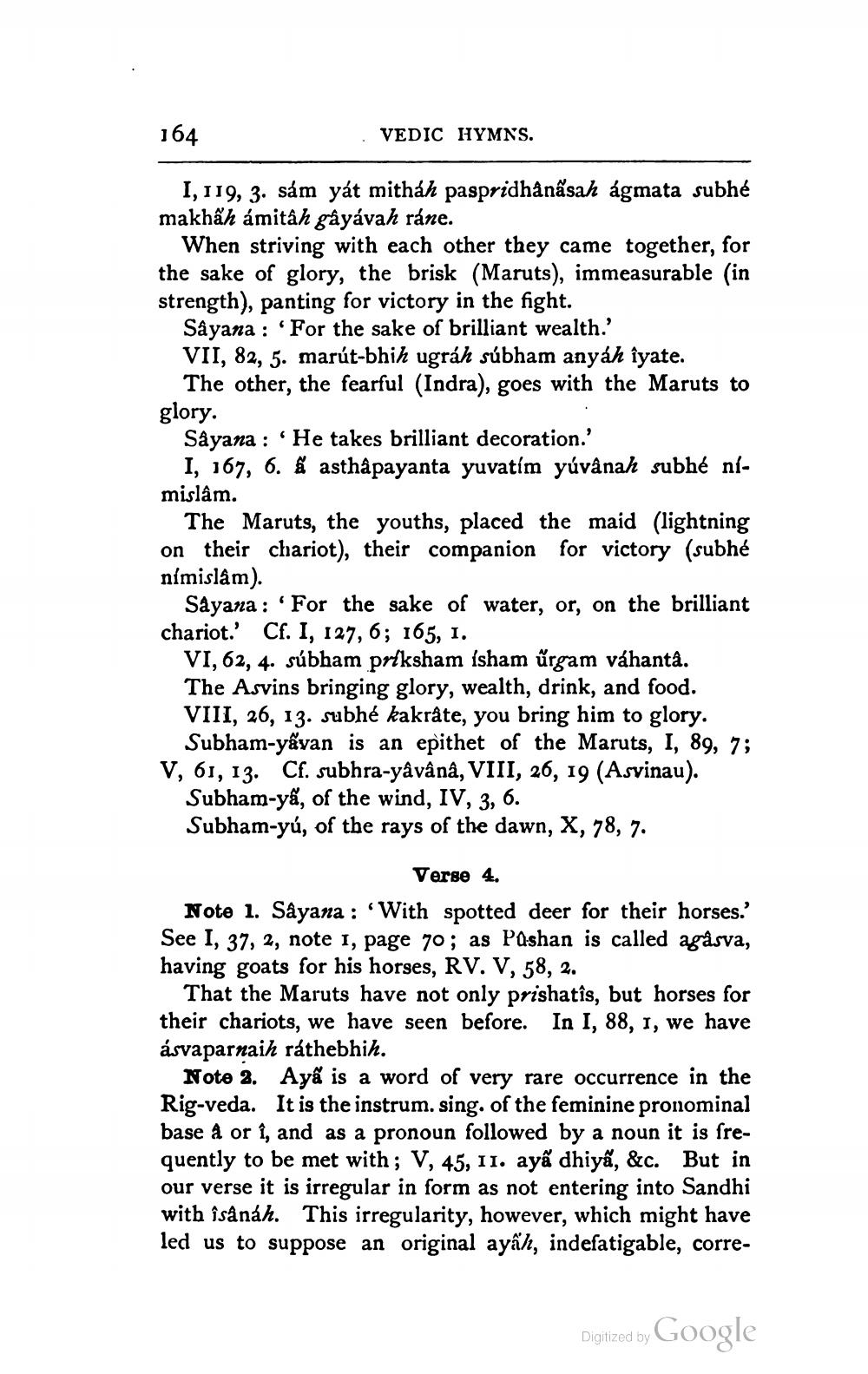________________
164
VEDIC HYMNS.
1, 119, 3. sám yát mithảh paspridhånãsah ágmata subhé makhấh ámitâh gâyávah rane.
When striving with each other they came together, for the sake of glory, the brisk (Maruts), immeasurable (in strength), panting for victory in the fight.
Sayana : 'For the sake of brilliant wealth.' VII, 82, 5. marút-bhih ugráh súbham anyáh îyate.
The other, the fearful (Indra), goes with the Maruts to glory.
Såyana : 'He takes brilliant decoration.'
I, 167, 6. & asthåpayanta yuvatím yúvânah subhé nímislâm.
The Maruts, the youths, placed the maid (lightning on their chariot), their companion for victory (subhé nímislâm).
Sayana : 'For the sake of water, or, on the brilliant chariot.' Cf. I, 127,6; 165, 1.
VI, 62, 4. súbham priksham isham úrgam váhantà. The Asvins bringing glory, wealth, drink, and food. VIII, 26, 13. subhé kakråte, you bring him to glory.
Subham-yavan is an epithet of the Maruts, I, 89, 7; V, 61, 13. Cf. subhra-yâvânâ, VIII, 26, 19 (Asvinau).
Subham-ya, of the wind, IV, 3, 6. Subham-yú, of the rays of the dawn, X, 78, 7.
Verse 4. Note 1. Sayana : 'With spotted deer for their horses.' See I, 37, 2, note 1, page 70; as Pashan is called agåsva, having goats for his horses, RV. V, 58, 2.
That the Maruts have not only prishatîs, but horses for their chariots, we have seen before. In I, 88, 1, we have ásvaparnaih ráthebhih.
Note 2. Ayã is a word of very rare occurrence in the Rig-veda. It is the instrum. sing. of the feminine pronominal base à or î, and as a pronoun followed by a noun it is frequently to be met with; V, 45, 11. ayã dhiyâ, &c. But in our verse it is irregular in form as not entering into Sandhi with îsanáh. This irregularity, however, which might have led us to suppose an original ayầh, indefatigable, corre
Digitized by
Digitized by Google




